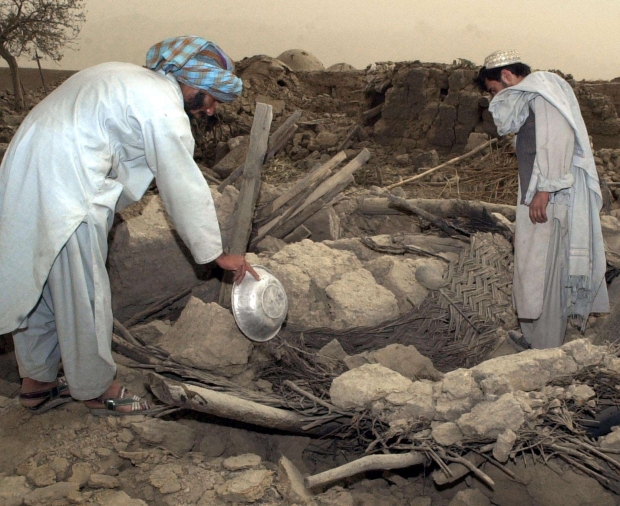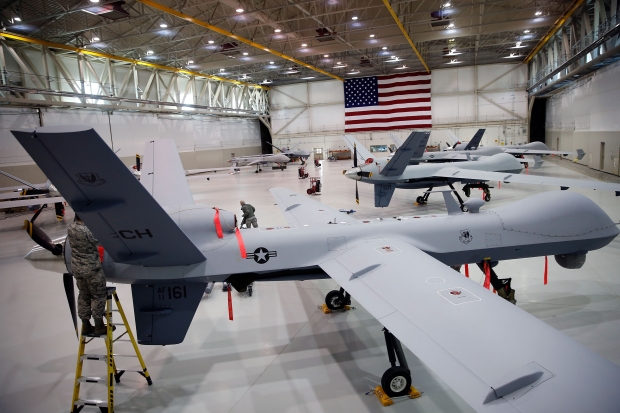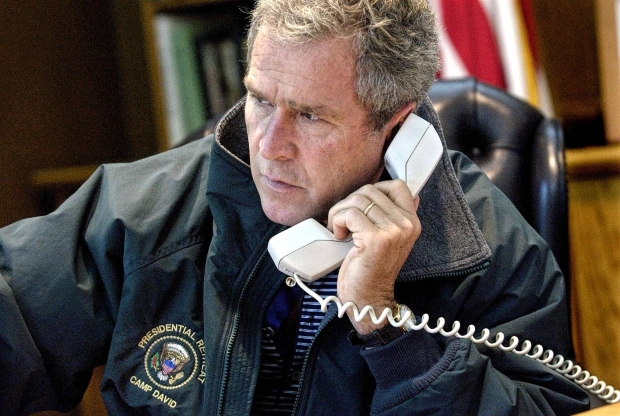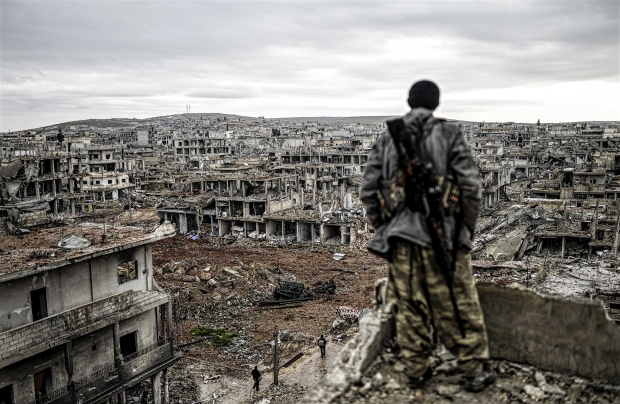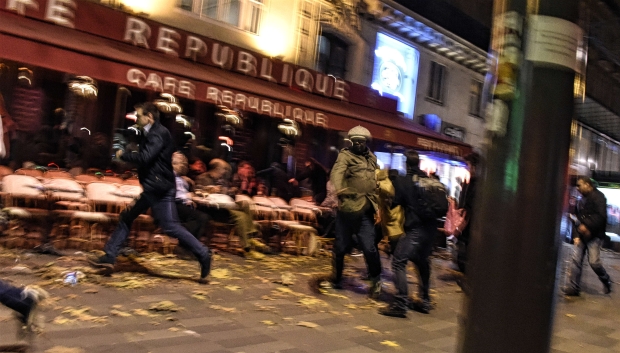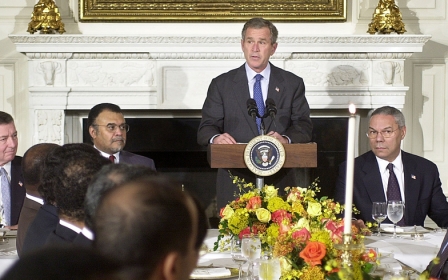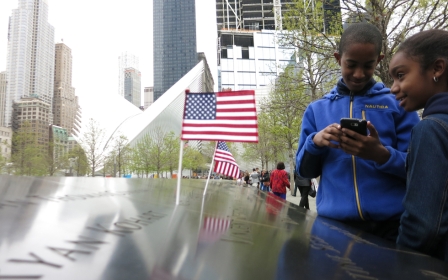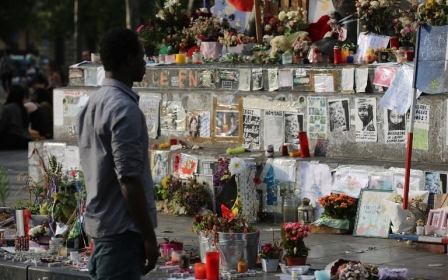After 9/11: America may be safer but the rest of the world pays the price
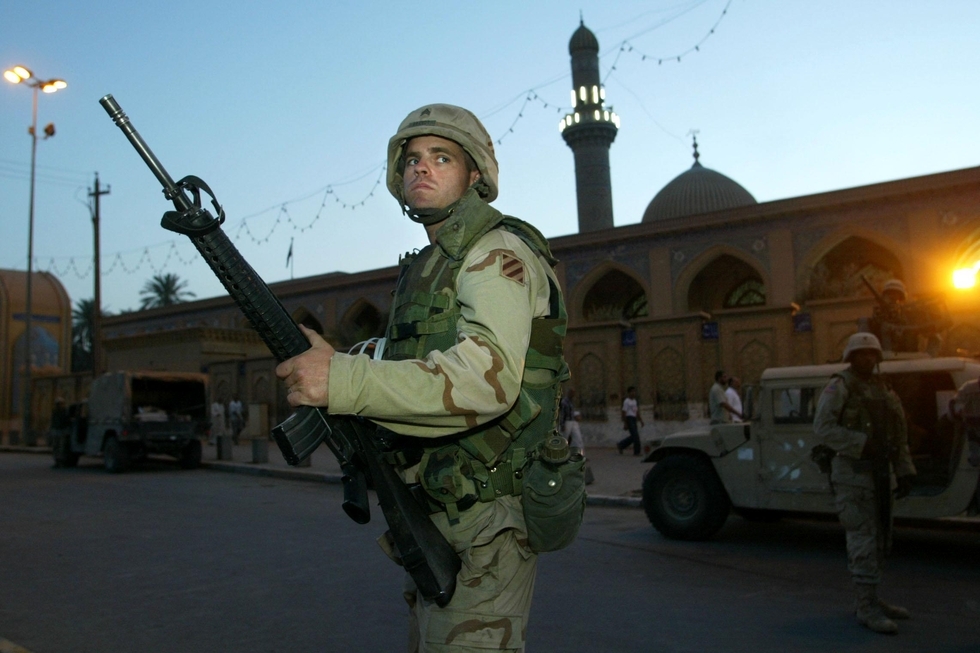
The United States is known for its mighty contributions to technological advancements, medical breakthroughs, art and literature – but it is a country that is not always associated with self-reflection. You see, America has little time for navel gazing, because dominating the world order is a full-time chore.
The attacks on New York and Washington DC have come to define a world for those born at the end of the previous century and the start of the current one
This Sunday marks 15 years since the most nation-shaping moment in the last 50 years of US history: the attacks of 11 September 2001. While the unprovoked Japanese raid on Pearl Harbor in 1941 defined a world for those Americans born in the early 20th century, the al-Qaeda orchestrated attacks on New York and Washington DC have come to define a world for those born at the end of the previous century and the start of the current one.
It’s high time for a little self-reflection, even navel gazing, if you will.
15 years of bombing the Middle East
At 8:48am on Tuesday 11 September 2001, against the backdrop of a cloudless, sun-drenched sky, a hijacked passenger jet, American Airlines Flight 11, carrying 81 passengers and 11 crew members, slammed into the North Tower of the World Trade Center in New York. Eighteen minutes later, United Airlines Flight 175, carrying 56 passengers and nine crew members, crashed into the South Tower. Another 34 minutes later, American Airlines Flight 77, carrying 58 passengers and six crew, crashed into the western side of the Pentagon in Washington DC, also killing 125 people inside the US military headquarters. And 10 minutes after that, United Airlines Flight 93 crashed into a field in Somerset County, Pennsylvania, killing 37 passengers and seven crew members.
That’s what happened on 9/11. So what has happened in the 15 years since?
By 6 December 2001, the number of Afghan civilians killed would exceed the total number of Americans killed by al-Qaeda in New York, Washington DC, and Pennsylvania a mere three months earlier. And in the weeks leading up the invasion of Iraq, the US dropped 27,000 bombs from 43,000 sorties.
In 2015 alone, the US dropped 23,144 bombs on the Middle East
US bombing has since continued uninterrupted during the tenure of two presidents who have each served two four-year terms. It will likely continue at the same rate or more under the next president. Consider that in 2015 alone, the US dropped 23,144 bombs on the Middle East.
There’s also a discussion to be had here regarding the drone assassination programme, torture, rendition, use of military tribunals, indefinite detention, mass surveillance, ethnic/religious profiling, anti-Muslim demagoguery, hyper-counter terrorism legislation and funneling of counter-terrorism dollars to the most anti-democratic regimes in the world.
How military spending has boomed
But have the actions of the past 15 years made the US and/or the rest of the world any safer? Have there been both notable successes and teachable failures? And does 9/11 mark the beginning of a forever war?
Arguably, the most pivotal mistake the US made in responding to the attacks came on 20 September 2001, when President Bush declared a “war on terrorism”.
Framing it as war, as opposed to a law-enforcement effort to apprehend the criminals who carried out the actual attacks (and thereby framing rank-and-file al-Qaeda members as “foot soldiers” and its leaders as “generals”) not only invokes and pseudo-justifies a military-centric response, but also lays the trap for a conflict without a definable end, which is pretty much where we find ourselves today.
This foreseeable endless war on terror has not only cost the lives of around 10,000 Americans, but when the wars of Iraq and Afghanistan are added in, a total cost estimated at nearly $4tn. The US intelligence budget alone has more than doubled since 2001 and now accounts for more than $70bn a year.
The US intelligence budget alone has more than doubled since 2001
A ballooning homeland security budget has created a new oligarchic class that is entirely wedded to the war on terrorism. New York Times investigative reporter James Risen provides many examples in "Pay Any Price: Greed, Power, and Endless War", but one that stands out above all others tells of Neal and Linden Blue. The Blue brothers bought General Atomics Aeronautical Systems for $38mn in the late 1980s. In 2001, the company had revenues of $110mn. In 2012, the brothers “received $1.8 billion in government contracts.”
The Blue brothers build military drones, the “soulless hunter-killers that circle the skies of Pakistan, Yemen and other chaotic lands”. As Risen writes “they [the Blue brothers] are the beneficiaries of one of the largest transfers of wealth from public to private hands in American history.”
Are Americans safer now? It's complex
Yet despite this obscene loss in lives and money, and notwithstanding the outsourcing of public institutions to private shareholders, the US has successfully prevented the one terrorist attack that truly matters: another atrocity on the scale of 9/11.
The answer to that question is complex. Let’s first gain some perspective. Since 9/11, jihadist terrorists have killed only nine Americans annually. In comparison, 69 have been killed by their lawnmower; 747 killed by falling out of bed; 31 by lightning, and 21 Americans are killed each year armed toddlers.
It’s impossible to overstate the impact that the media-driven fear of terrorism has had on the public discourse for the past 15 years
When you place the deaths of the nine Americans who are killed annually by those who declare “jihad” in context of the other 11,737 who are shot dead by their fellow Americans, then you can see how overblown the terrorism threat really is.
Sadly, such statistical analysis rarely offers much comfort to a public which is being scared to death by a media that profits by fixating on acts of spectacular violence, acts that groups such as Islamic State (IS) are all too happy to deliver as polished media products.
It’s impossible to overstate the impact that the media-driven fear of terrorism has had on the public discourse for the past 15 years, and the impact that discourse has had on counter-terrorism policy. Over-inflated public fear has driven policy makers to compromise the balance between liberty and security which, in turn, has resulted in the implementation of controversial counter-terrorism tactics that have proven self-defeating in the long term.
2001: No IS, Boko Haram, al-Nusra Front
Not only have torture, profiling, indefinite detention, rendition, mass surveillance and the use of military tribunals been counter-productive, insofar as they have “increased the ratio of informational ‘noise’ to terrorist signal, undermined the state’s legitimacy among potential civilians informants,” but these measures have been portrayed by groups such as IS as evidence that the US is not only carrying out a military war against Muslims but also a clandestine war.
Clearly, as terrorism expert Bruce Hoffman notes, it’s impossible for government security agencies to counter every terrorist measure that would “preclude every possible attack by every possible terrorist group for every possible motive.” But there has to be some measure of success, whether that measure is a decrease in the number of terrorist incidences, or a reduction in the total number of terrorist militants. Military efforts to defeat terrorism in Iraq, Afghanistan, Syria, Yemen, Somalia, Pakistan and elsewhere have not produced anything that could be misconstrued as success against these metrics.
Moreover, al-Qaeda in the Arabian Peninsula, while bogged down in a civil war in Yemen, remains a persistent threat, especially given the group’s bomb making abilities; militant groups are thriving throughout what is a lawless Libya; and the Taliban is resurgent in Afghanistan.
One can neither bomb nor kill their way to victory against trans-national terrorism
All of which is happening against a backdrop that includes the US dropping 23,144 bombs in the Middle East during 2015 alone, and the deployment of more than 6,000 military personnel during the past 12 months. There is also the fact that US-led wars in the Middle East have caused the deaths of more than 4mn Muslims since 1991.
Clearly, one can neither bomb nor kill their way to victory against trans-national terrorism.
Real threat is to Arab and European allies
Is the US any safer today than it was on 10 September 2001? It could be argued that the answer is yes, but with the following disclaimer: it is only safer against a 9/11 style attack.
However, a new wave of diffuse groups has emerged as a direct result of the US response to 9/11 with the resources to invest heavily and skillfully in online and offline recruitment.
One can argue that the threat of non-centrally coordinated small-scale attacks by do-it-yourself jihadists is greater than ever before. This will pose more of a security challenge for European counter terrorism agencies, given the thousands of Europeans who have travelled to fight alongside jihadist groups in Iraq and Syria.
Assessing overall counter-terrorism efforts, Brian Michael Jenkins, a former Green Beret who served on the White House Commission on Aviation Safety and Security, identified some examples of limited success. “Neither al-Qaeda nor the Islamic State has become a mass movement,” he said, “the constellation of jihadist groups is not as meaningful as it appears to be; terrorists cannot translate their attacks into permanent political gain; the Islamic State is losing territory and can be defeated; and al-Qaeda’s central command has been reduced to exhorting others to fight.” But Jenkins warned that “the world will be dealing with the effluents of the conflict in Syria and Iraq for years to come.”
The ultimate assessment of US efforts to defeat terrorism is that the US is safer, but it has set the Middle East in flames
In a white paper entitled “Is American Any Safer?” The Atlantic’s investigation into America’s counter-terrorism readiness concluded that the threat from bioterrorism is still “the most likely game-changing terrorist attack”; and that despite 15 years of exhaustive counter-terror investments “the bioterror threat hasn’t receded; if anything, advances in science and technology have made it easier to launch these kind of weapons.” Moreover, The Atlantic calculated that the US government has spent up to $150bn on failed or unworthy counter-terrorism programmes and equipment.
The price paid by the US for making itself safer from terrorism has been a cost borne by those countries the US has destabilised. The ultimate assessment of US efforts to defeat terrorism is that the US is safer, but it has set the Middle East in flames, thus spawning new and more sophisticated terrorist groups that pose little threat to the US itself but do pose a threat to its European and Arab allies.
- CJ Werleman is the author of Crucifying America, God Hates You. Hate Him Back, Koran Curious, and is the host of Foreign Object. Follow him on twitter: @cjwerleman
The views expressed in this article belong to the author and do not necessarily reflect the editorial policy of Middle East Eye.
Photo: A US Army soldier stands guard in front of the Abu Hanifa mosque in Baghdad in June 2003 (AFP)
This article is available in French on Middle East Eye French edition.
New MEE newsletter: Jerusalem Dispatch
Sign up to get the latest insights and analysis on Israel-Palestine, alongside Turkey Unpacked and other MEE newsletters
Middle East Eye delivers independent and unrivalled coverage and analysis of the Middle East, North Africa and beyond. To learn more about republishing this content and the associated fees, please fill out this form. More about MEE can be found here.



